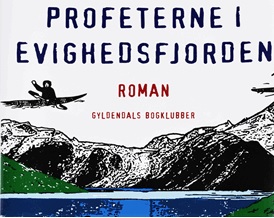Bertelsen, Rasmus Gjedssø: »Historisk læring som struktur for dialog om det fremtidige forhold mellem Danmark og Nordatlanten«. In: Politika. Tidsskrift for politisk videnskab 51:4 (2019), 401–422.
With his article Rasmus Gjedssø Bertelsen states that «historisk læring», history-based learning based upon experiences by the 1918-forbundsloven between Denmark and Iceland, should be used to help the Faroe Islands and Greenland become independent states. In his opinion, history-based learning is useful for future relations between Denmark, the Faroe Islands and Greenland to structure shared strategic analyses, discussions and decisions (401).
Gjedssø Bertelsen portrays the parallels between the three insular Scandinavian countries Iceland, Greenland and the Faroe Islands well. For instance, he shows that in each of the three countries national liberalism emerged among students (in Iceland in the 1830s and 1840s, in the Faroe Islands in the late 19th century and in Greenland in the 1960s and 1970s) and that all three nations, after the collapse of the European safety system in the 1930s, were under foreign control either by Great Britain (Faroe Islands 12th April 1940) or America (Greenland 9th April 1941 and Iceland 7th July 1941) (413 and 411). By illustrating these similarities between the countries Gjedssø Bertelsen makes it clear that Iceland’s way to independency could function well as a role model for both Greenland and the Faroe Islands. However, he also demonstrates that in Greenland there is a lack of consciousness regarding Iceland’s history with Denmark because Greenland’s access to the Icelandic Faroese language and cultural community is restricted (406). Therefore, Greenland showed interest for the free association model, which is used among the Cook Islands and New Zealand (410). Gjedssø Bertelsen rightly criticizes that Denmark and the North Atlantic do not have experiences with this type of model and advises that it should made use of the well-documented experiences of the 1918-forbundsloven.
Furthermore, Rasmus Gjedssø Bertelsen’s article demonstrates the historical and political relations between Denmark and the North Atlantic very comeprehensibly and lays open the difficulties of Rigsfælleskab. Nordatlanten, as he depicts, is of great importance for Denmark – 98 per cent of the Danish state’s land and sea area are located in Nordatlanten and the Arctic – but this comes with the disadvantage that Denmark continuously has to balance between European and North Atlantic interests (404f.).
In addition, Gjedssø Bertelsen illustrates the three inner conditions for the North Atlantic independence – political will, human capital and fiscal independence. Primarily, he indicates well which problems Greenland and the Faroe Islands must face in comparison to Iceland fulfilling these three inner conditions (408f.).
If one wants to criticise something about Rasmus Gjedssø Bertelsen‘s article, it would be that from the beginning on it has its focus noticeably on the relation between Greenland and Denmark which may be related to the circumstance that Greenland’s way to autonomy faces more critical doubt than the one of the Faroes Islands does.

